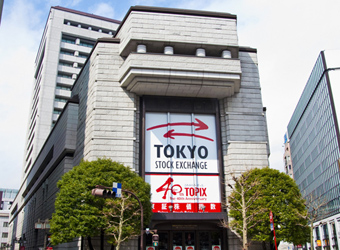Japanese stocks soared while the rest of Asian shares wavered on Monday as the dollar spiked to more than three-month highs against the yen following a snap election in Japan on Sunday.
Japanese Prime Minister Shinzo Abe’s ruling coalition secured a two-thirds “super majority” after winning 312 out of 465 seats available at Sunday’s election, Reuters said, citing local media. Abe’s solid win at the polls points to a continuation of fiscal and hyper-easy monetary policies under his Abenomics program.
Those developments were cheered by investors, with Japanese equities popping at the open. The Nikkei 225 surged 1.2 percent, with exporters notching gains on the softer Japanese currency: Nissan rose 1.53 percent, Mitsubishi Motor was up 2.12 percent and Sony rose 1.01 percent. The broader Topix was up 0.92 percent.
Ahead of Sunday’s election, the Nikkei 225 had closed higher for 14 straight sessions, partially boosted by optimism that Abe’s ruling coalition would win.
Following the news, the dollar also spiked fetched as high as 114.09 yen in the session — its highest levels in more than three months. The greenback traded at 113.76 at 12:26 p.m. HK/SIN.
While the election result had been largely expected, the strong mandate resulting from Abe’s convincing victory “made all the difference for markets,” Jingyi Pan, a market strategist at IG, said in a note.
Across the Korean Strait, the Kospi was little changed, last trading 0.01 percent above the flat line. Gains in blue-chip tech names were offset by declines seen in manufacturing plays and brokerages.
Down Under, the S&P/ASX 200 reversed early gains to slip 0.13 percent.
Meanwhile, Hong Kong’s Hang Seng Index declined 0.67 percent as property, gaming and oil stocks declined. Insurer AIA fell 2.24 percent.
Mainland markets traded a touch above the flat line: The Shanghai Composite was higher by 0.02 percent and the Shenzhen Composite was up 0.253 percent.
Markets in Thailand and New Zealand are closed today for public holidays.
Stateside, stocks closed higher on Friday after the U.S. Senate passed a budget measure late on Thursday. The move unlocked reconciliation, which enables Republicans to pass a tax bill with a simple 51-vote majority in the Senate.
The Dow Jones industrial average tacked on 0.71 percent, or 165.59 points, to close at a record 23,328.63. Other major indexes touched record highs during the session.
The dollar index stood at 93.763 at 12:25 p.m. HK/SIN, compared to levels around the 93.6 handle seen on Friday.
Ahead, investors are likely to keep an eye on the race for the position of Federal Reserve chair. President Donald Trump indicated in a Fox News interview aired over the weekend that Stanford University economist John Taylor and Federal Reserve Governor Jerome Powell remained among the candidates he was considering. He also said he would make his decision shortly.
Back in in Asia, China’s 19th Party Congress remained in focus as markets awaited signs on the future leadership line-up of the country, which will be officially unveiled later this week.
Also in China, average home prices in September rose 6.3 percent compared to one year ago, according to Reuters. That figure was below the 8.3 percent increase seen in August.
In corporate news, Singapore-listed Noble Group said it would be disposing of its capital stock of Noble Americas Corporation, the company’s global oil liquids business, for roughly $582 million. Noble shares tumbled 9.21 percent.
In currencies, the euro was in focus following an ongoing political crisis in Spain. The common currency traded at $1.1769 at 12:42 p.m. HK/SIN after falling as low as $1.1750 in the session.
Meanwhile, the New Zealand dollar last traded at $0.6965 after falling as low as $0.6929 in the session. The Kiwi dollar had fallen following last week’s announcement that a Labour Party coalition would be forming the government.
On the energy front, U.S. crude futures were up 0.48 percent at $52.09 a barrel. Brent crude futures were 0.23 percent higher at $57.88. Source: CNBC
Source: CNBC
